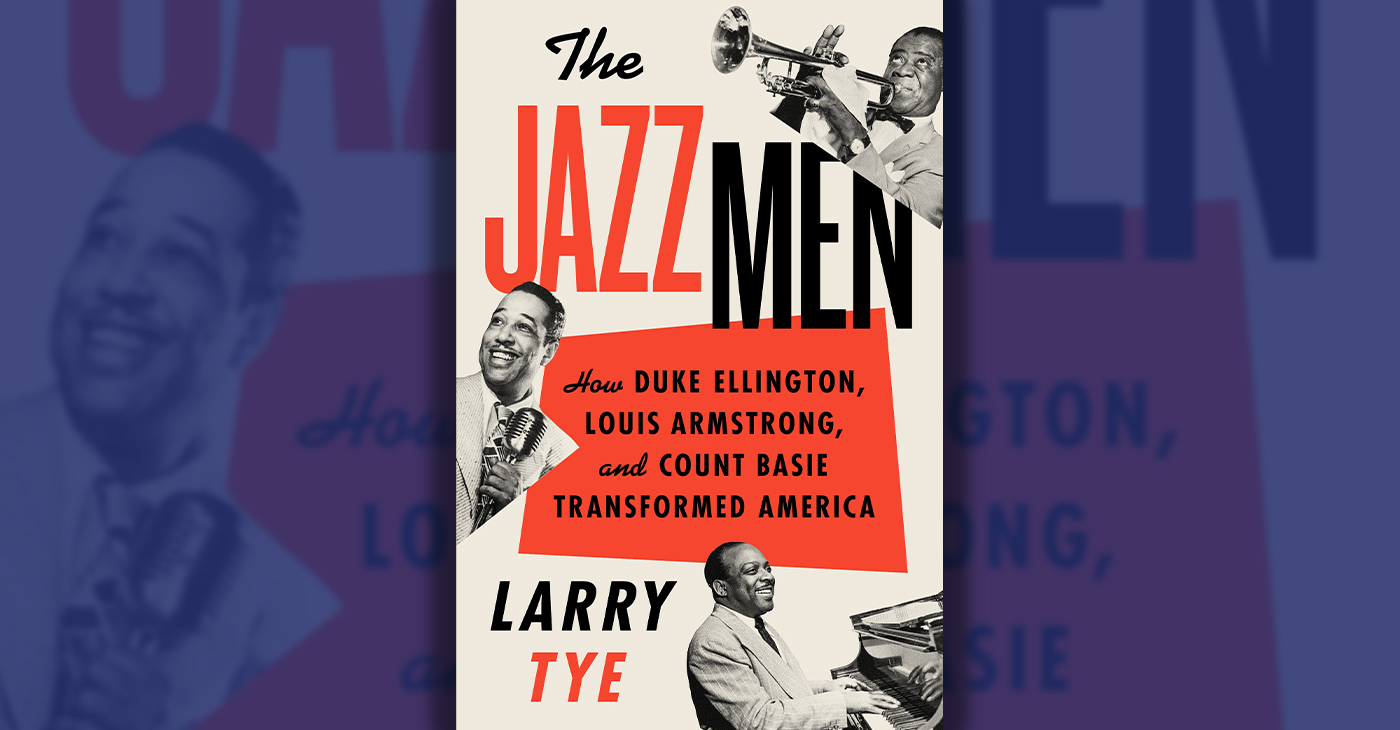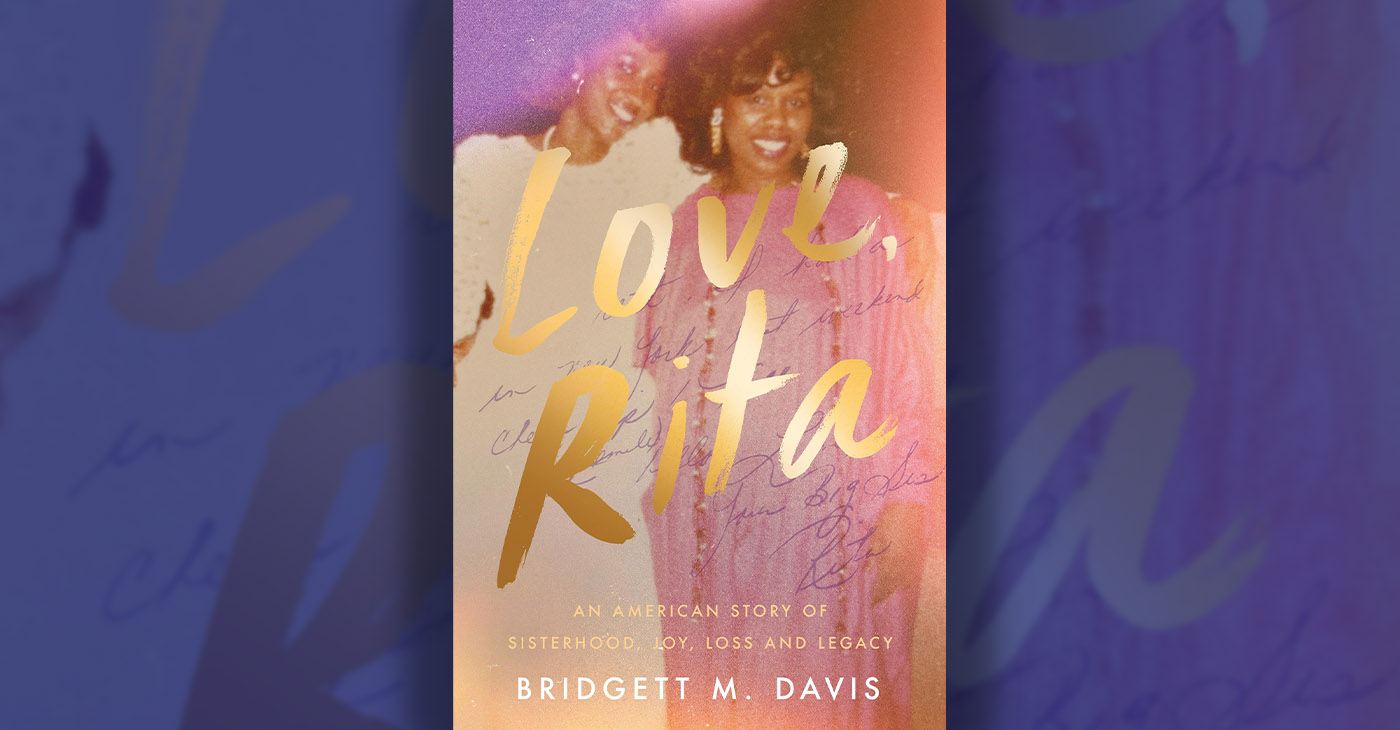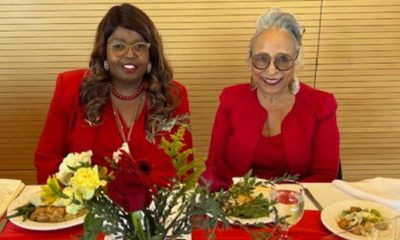Black History
Book Review: ‘The Jazzmen: How Duke Ellington, Louis Armstrong, and Count Basie Transformed America’
Your toes didn’t wait long before they started tapping. They knew what was coming, almost as soon as the band was seated. They knew before the first notes were played and the hep cats and jazz babies hit the floor to cut a rug. Daddy, it was the bee’s knees but in the new book “The Jazzmen” by Larry Tye, if you were the Sheik on the stage, makin’ cabbage wasn’t all that swank.

By Terri Schlichenmeyer
Your toes didn’t wait long before they started tapping.
They knew what was coming, almost as soon as the band was seated. They knew before the first notes were played and the hep cats and jazz babies hit the floor to cut a rug. Daddy, it was the bee’s knees but in the new book “The Jazzmen” by Larry Tye, if you were the Sheik on the stage, makin’ cabbage wasn’t all that swank.
Louis Armstrong was born in 1900 or thereabouts in a “four-room frame house on an unpaved lane” in a section of New Orleans called “Back o’Town … the Blackest, swampiest, and most impoverished” area of the city. His mother was a “chippie,” and the boy grew up running barefoot and wild, the latter of which led to trouble. At age twelve, Armstrong was sent to the Colored Waif’s Home for recalcitrant Black boys, and that changed his life. At the “home,” he found mentors, father-figures and love, and he discovered music.
For years, Bill “Count” Basie insisted that he’d grown up with “no-drama, no-mystery, and nobody’s business but his,” but the truth was “sanitized.” He hated school and dropped out in junior high, hoping to join the circus. Instead, he landed a job working in a “moving-picture theater” as a general worker. When the theater’s piano player didn’t come to work one day, Basie volunteered to sit in. He ultimately realized that “I had to get out … of Red Bank [New Jersey], and music was my ticket.”
Even as a young teenager, Edward Ellington insisted that he be treated like a superstar. By then, his friends had nicknamed him “Duke,” for his insistence on dressing elegantly and acting like he was royalty. And he surely was — to his mother, and to millions of swooning female fans later in his life.
Three men, born at roughly the same time, had more in common than their ages. Two of them had mothers “who doted” on them. All three were perform-aholics. And, for all three, “Race … fell away as America listened.”
Feel up to a time-trip back a century or more? You won’t even have to leave your seat, just grab “The Jazzmen” and hang on.
In his introduction, author Larry Tye explains why he so badly wanted to tell the story of these three giants of music and how Basie’s, Ellington’s, and Armstrong’s lives intersected and diverged as all three were near-simultaneously performing for audiences world-wide. Their stories fascinated him, and his excitement runs strong in this book. Among other allures, readers used to today’s star-powered gossip will enjoy learning about an almost-forgotten time when performers took the country by storm by bootstrapping without a retinue of dozens.
And the racism the three performers encountered disappeared like magic sometimes, and that’s a good tale all by itself.
This is a musician’s dream book, but it’s also a must-read story if you’ve never heard of Basie, Ellington, or Armstrong. “The Jazzmen” may send you searching your music library, so make note.
Activism
Four Bills Focus on Financial Compensation for Descendants of Enslaved People
This week, CBM examines four more bills in the package — each offering ways for Black Californians to receive restitution for past injustices — from housing assistance and reclamation of loss property to fairer pay and the establishment of a state agency charged with determining eligibility for reparations.

Edward Henderson
California Black Media
Last week, California Black Media (CBM) provided an update on four bills in the California Legislative Black Caucus (CLBC) 2025 Road to Repair package.
The 16 bills in the Black Caucus’s 2025 “Road to Repair” package focus on “repairing the generational harms caused by the cruel treatment of African American slaves in the United States and decades of systemic deprivation and injustice inflicted upon Black Californians,” said the CLBC in a release.
This week, CBM examines four more bills in the package — each offering ways for Black Californians to receive restitution for past injustices — from housing assistance and reclamation of lost property to fairer pay and the establishment of a state agency charged with determining eligibility for reparations.
Here are summaries of these bills, information about their authors, and updates on how far each one has advanced in the legislative process.
Assembly Bill (AB) 57
AB 57, introduced by Assemblymember Tina McKinnor (D-Inglewood), would require that at least 10% of the monies in the state’s home purchase assistance fund be made available to applicants who meet the requirements for a loan under the home purchase assistance program and are descendants of formerly enslaved people.
The Assembly Judiciary Committee is currently reviewing the legislation.
Assembly Bill (AB) 62
AB 62, also introduced by McKinnor, would require the Office of Legal Affairs to review, investigate, and make specific determinations regarding applications from people who claim they are the dispossessed owners of property seized from them because of racially motivated eminent domain. The bill would define “racially motivated eminent domain” to mean when the state acquires private property for public use and does not provide just compensation to the owner, due in whole or in part, to the owner’s race.
AB 62 is currently under review in the Judiciary Committee.
Senate Bill (SB) 464
SB 464, introduced by Sen. Lola Smallwood-Cuevas (D-Los Angeles), aims to strengthen the existing civil rights laws in California concerning employer pay data reporting. The bill mandates that private employers with 100 or more employees submit annual pay data reports to the Civil Rights Department. These reports must include detailed demographic information — including race, ethnicity, sex, and sexual orientation — pertaining to their workforce distribution and compensation across different job categories. Furthermore, beginning in 2027, public employers will also be required to comply with these reporting requirements.
The Senate Committee on Labor, Public Employment, and Rules is currently reviewing SB 464. A hearing is expected to be held on April 23.
Senate Bill (SB) 518
SB 518, introduced by Sen. Akilah Weber Pierson (D-San Diego), establishes the Bureau for Descendants of American Slavery to address and remedy the lasting harms of slavery and the Jim Crow laws suffered by Black Californians.
SB 518 is under review in the Senate Judiciary Committee. A hearing is expected to be held on April 22.
Arts and Culture
BOOK REVIEW: Love, Rita: An American Story of Sisterhood, Joy, Loss, and Legacy
When Bridgett M. Davis was in college, her sister Rita was diagnosed with lupus, a disease of the immune system that often left her constantly tired and sore. Davis was a bit unfazed, but sympathetic to Rita’s suffering and also annoyed that the disease sometimes came between them. By that time, they needed one another more than ever.

By Terri Schlichenmeyer
Author: Bridgett M. Davis, c.2025, Harper, $29.99, 367 Pages
Take care.
Do it because you want to stay well, upright, and away from illness. Eat right, swallow your vitamins and hydrate, keep good habits and hygiene, and cross your fingers. Take care as much as you can because, as in the new book, “Love, Rita” by Bridgett M. Davis, your well-being is sometimes out of your hands.
It was a family story told often: when Davis was born, her sister, Rita, then four years old, stormed up to her crying newborn sibling and said, ‘Shut your … mouth!’
Rita, says Davis, didn’t want a little sister then. She already had two big sisters and a neighbor who was somewhat of a “sister,” and this baby was an irritation. As Davis grew, the feeling was mutual, although she always knew that Rita loved her.
Over the years, the sisters tried many times not to fight — on their own and at the urging of their mother — and though division was ever present, it eased when Rita went to college. Davis was still in high school then, and she admired her big sister.
She eagerly devoured frequent letters sent to her in the mail, signed, “Love, Rita.”
When Davis was in college herself, Rita was diagnosed with lupus, a disease of the immune system that often left her constantly tired and sore. Davis was a bit unfazed, but sympathetic to Rita’s suffering and also annoyed that the disease sometimes came between them. By that time, they needed one another more than ever.
First, they lost their father. Drugs then invaded the family and addiction stole two siblings. A sister and a young nephew were murdered in a domestic violence incident. Their mother was devastated; Rita’s lupus was an “added weight of her sorrow.”
After their mother died of colon cancer, Rita’s lupus took a turn for the worse.
“Did she even stand a chance?” Davis wrote in her journal.
“It just didn’t seem possible that she, someone so full of life, could die.”
Let’s start here: once you get past the prologue in “Love, Rita,” you may lose interest. Maybe.
Most of the stories that author Bridgett M. Davis shares are mildly interesting, nothing rare, mostly commonplace tales of growing up in the 1960s and ’70s with a sibling. There are a lot of these kinds of stories, and they tend to generally melt together. After about fifty pages of them, you might start to think about putting the book aside.
But don’t. Not quite yet.
In between those everyday tales, Davis occasionally writes about being an ailing Black woman in America, the incorrect assumptions made by doctors, the history of medical treatment for Black people (women in particular), attitudes, and mythologies. Those passages are now and then, interspersed, but worth scanning for.
This book is perhaps best for anyone with the patience for a slow-paced memoir, or anyone who loves a Black woman who’s ill or might be ill someday. If that’s you and you can read between the lines, then “Love, Rita” is a book to take in carefully.
Activism
Faces Around the Bay: Author Karen Lewis Took the ‘Detour to Straight Street’
“My life has been a roller-coaster with an unlimited ride wristband! I was raised in Berkeley during the time of Ron Dellums, the Black Panthers, and People’s Park. I was a Hippie kid, my Auntie cut off all our hair so we could wear the natural styles like her and Angela Davis.

By Barbara Fluhrer
I met Karen Lewis on a park bench in Berkeley. She wrote her story on the spot.
“My life has been a roller-coaster with an unlimited ride wristband! I was raised in Berkeley during the time of Ron Dellums, the Black Panthers, and People’s Park. I was a Hippie kid, my Auntie cut off all our hair so we could wear the natural styles like her and Angela Davis.
I got married young, then ended up getting divorced, raising two boys into men. After my divorce, I had a stroke that left me blind and paralyzed. I was homeless, lost in a fog with blurred vision.
Jesus healed me! I now have two beautiful grandkids. At 61, this age and this stage, I am finally free indeed. Our Lord Jesus Christ saved my soul. I now know how to be still. I lay at his feet. I surrender and just rest. My life and every step on my path have already been ordered. So, I have learned in this life…it’s nice to be nice. No stressing, just blessings. Pray for the best and deal with the rest.
Nobody is perfect, so forgive quickly and love easily!”
Lewis’ book “Detour to Straight Street” is available on Amazon.
-

 Activism4 weeks ago
Activism4 weeks agoOakland Post Endorses Barbara Lee
-

 Activism4 weeks ago
Activism4 weeks agoOakland Post: Week of April 2 – 8, 2025
-

 #NNPA BlackPress3 weeks ago
#NNPA BlackPress3 weeks agoTrump Profits, Black America Pays the Price
-

 Activism2 weeks ago
Activism2 weeks agoOakland Post: Week of April 9 – 15, 2025
-

 #NNPA BlackPress3 weeks ago
#NNPA BlackPress3 weeks agoHarriet Tubman Scrubbed; DEI Dismantled
-

 #NNPA BlackPress3 weeks ago
#NNPA BlackPress3 weeks agoTrump Targets a Slavery Removal from the National Museum of African-American History and Culture
-

 #NNPA BlackPress3 weeks ago
#NNPA BlackPress3 weeks agoLawmakers Greenlight Reparations Study for Descendants of Enslaved Marylanders
-

 #NNPA BlackPress3 weeks ago
#NNPA BlackPress3 weeks agoNew York Stands Firm Against Trump Administration’s Order to Abandon Diversity in Schools





















































